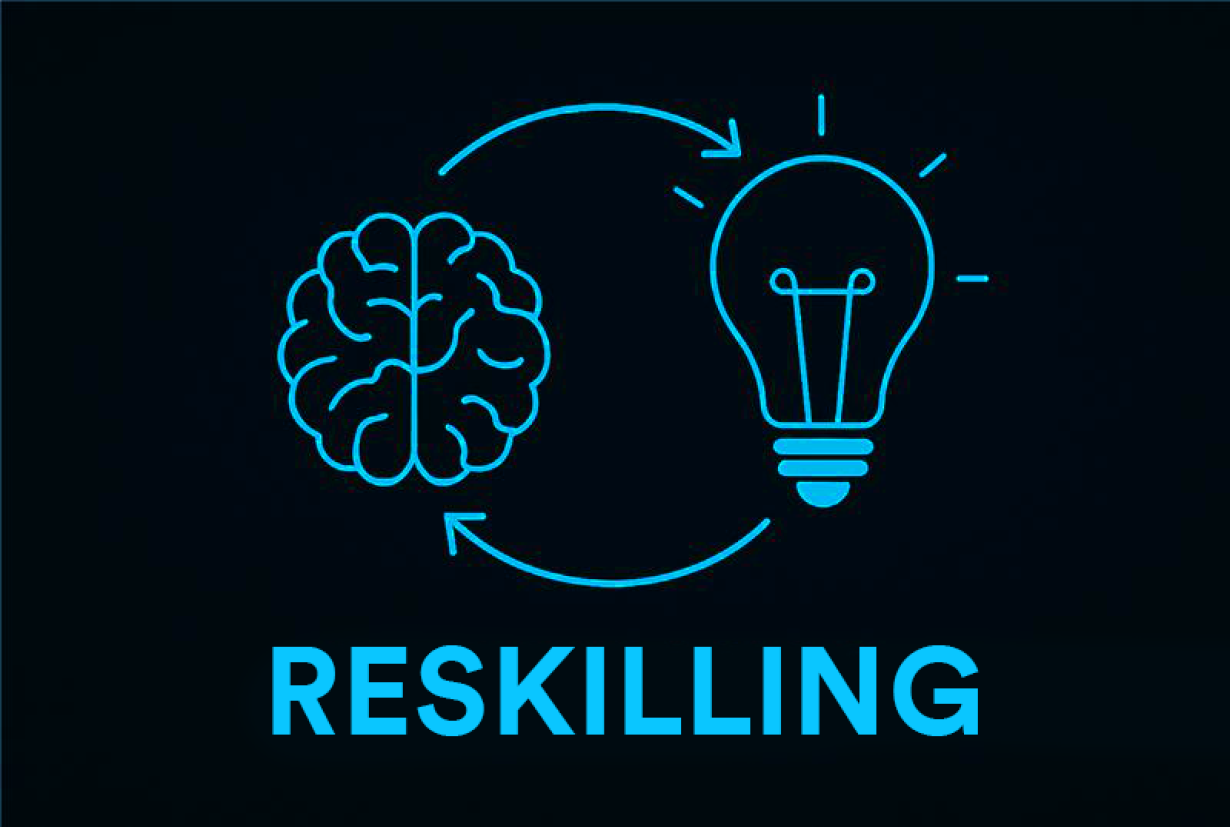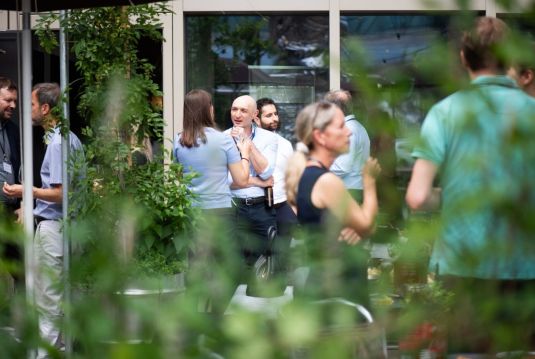Reskilling
Rethinking Your Career in a Rapidly Changing World

from Dr. Elena D’Cruz
09. July 2025

Reskilling: Rethinking Your Career in a Rapidly Changing World
The world of work feels unstable for many right now: Layoffs, shifting requirements, and rapid technological developments are part of everyday life. Amazon is cutting jobs, Ford is rolling out AI, and opportunities in tech seem harder to access. The change is real.
At the same time, recent Swiss labour data shows signs of optimism: in June 2025, the unemployment rate dropped slightly to 2.3%. Demand for skilled professionals in IT, Engineering, and Life Sciences remains high – including for temporary or project-based roles. In-demand profiles include Integration and Cloud Engineers, IT Security Experts, and QA/Validation Specialists in the Life Sciences sector. New initiatives such as Lonza’s expansion in Visp, with 250 planned roles, demonstrate that new jobs are being created.
In short: Jobs of the future do exist – but they are changing. Those with high learning agility will be in demand. And this is where reskilling becomes essential.
What is Reskilling and How is it Different from Upskilling?
Reskilling means acquiring entirely new skills to transition into a different or significantly evolving job field. Unlike upskilling, which deepens existing capabilities, reskilling is about a career shift: for example, from project management to data analytics, or from administrative work to roles in AI operations or sustainability.
Why Reskilling Matters Now
Forecasts by the World Economic Forum and other market analysts predict that around 40% of today’s skills will no longer be relevant by 2030. At the same time, new roles are emerging – in green tech, AI, and biosciences.
Hiring new employees is costly, time-consuming, and resource-intensive. Companies that invest in reskilling gain a competitive edge by developing talent internally instead of relying solely on external recruitment. Reskilling not only reduces layoffs but also strengthens employee retention: people are more likely to stay when they feel their development is valued.
It also enhances employer branding. When companies are seen as places for growth and development, they attract stronger talent. Existing employees gain confidence when they are encouraged to explore lateral moves or project-based roles to build new skills and perspectives.
Our Role as Matchmakers
At Coopers, we see reskilling as a strategic part of our work. Especially in uncertain times, it is not just about filling roles – it is about recognizing people with the potential to grow into them.
- We identify potential – even when a skill is (still) missing.
- We think in learning paths and development opportunities.
- We offer honest guidance to companies when the "perfect" profile is unrealistic but great things can happen through reskilling.
For us, matching is not about the best CV. It is about the right fit with long-term potential – and understanding the person behind the profile. We take time to listen, uncover strengths, and create pathways that truly fit – professionally, culturally, and personally.
Conclusion: Use Change, Do Not Fear It
Reskilling is not a last resort, it is a powerful opportunity to reshape your career. For companies, it means future-proofing their workforce. For candidates, it opens new doors – often with more meaning, growth, and satisfaction.
Ready to take the next step? Discover our open positions: coopers.ch/jobs
Or talk to us about where you want to go next. Maybe it is not about a "perfect fit". Rather about the courage to reinvent yourself. We are here to support you.
Your Coopers Family
#ingoodcompany
Photo: ChatGPT
Career

Mindset matters: Why Your Way of Thinking Determines Success
Find out here why the growth mindset is the key to long-term success.

Upskilling as Career Booster
Upskilling: How to develop your skills and career strategically, without switching jobs.

AI in the Workplace
Survival of the Fittest in today’s job market: Those who adapt benefit the most from AI.

Networking 101: How to Network Successfully
A strong network opens doors - especially for contractors and contingent workers. Find out what networking strategies really work and how to build valuable connections.


_1.svg)